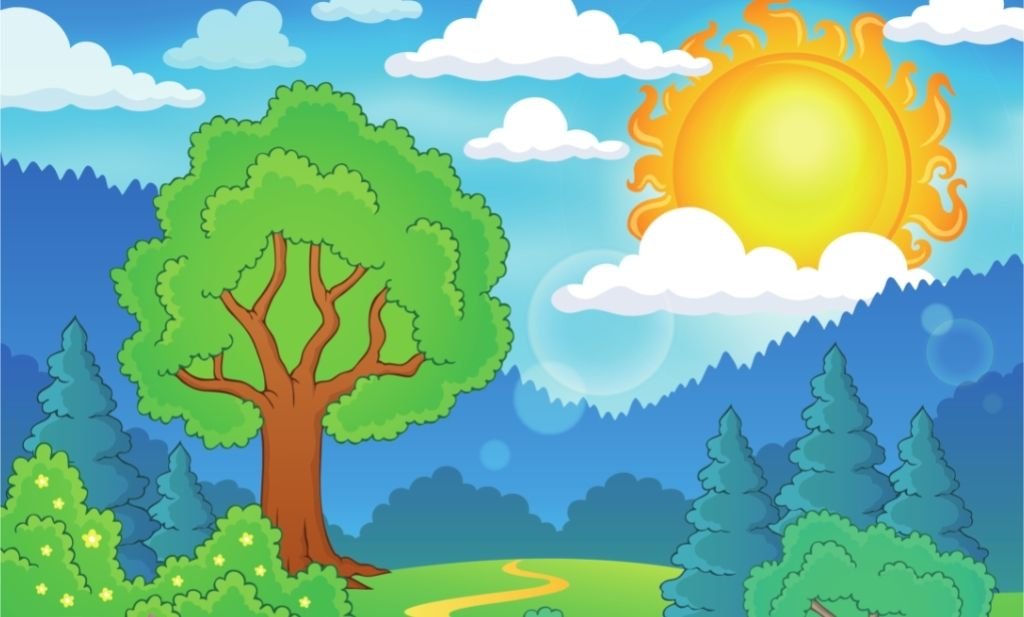Reconnecting with the Natural World

A Chat with Jack Dwyer, Co-Founder of Vyra, a sustainability start-up aiming to re-establish the connection between people and the natural world.
Vincent: Two Irish lads meet in a bar and it leads to a company being started. Tell me more.
Jack: Possibly not the first time a few Irish folk have discussed solving world problems over pints. Maybe one of the first times the ideas have been actualised afterwards.
The story is slightly in jest as my co-founder Luke and I did know each other well before the meeting, after both spending some time working abroad it was really about having a catch-up, we soon realised that we shared some experiences and ideas around climate change and what we wanted to do about it.
Vincent: What does Vyra do to help tackle the sustainability challenge and who is your customer?
Jack: Vyra is focused on helping large companies to keep up with the increasing need to become more sustainable through its employee-driven e-learning experience, Zero to Sustainable.
Unlike traditional in-house initiatives for sustainability that are a nice-to-have and may require teams to take time off work, Zero to Sustainable requires minimal engagement, team members can be anywhere to take part and it has tangible and impactful outcomes for the organisation and the employees.
Vincent: To achieve a more sustainable future requires a significant shift in behaviour. How does Vyra use gamification to influence behaviour for positive change?
Jack: Behavioural change is at the heart of Vyra’s Zero to sustainable course. The course combines gamification and impact data, in simple terms this means participants earn rewards for completing sustainable challenges with their team and every challenge completed has a measurable outcome in reduced carbon emissions. Isolated sustainable behaviours may have a negligible impact, but the collective impact of many people committing to the same behaviour can have a massive impact. Significant behavioural change is possible when you frame it in this context where it is accessible, relatable, and most importantly, fun.
Vincent: It seems like we share a belief in the collective power of individual action. Do you think the key to the sustainability challenge is empowering people to make the required changes?
Jack: It’s all about education at the end of the day. There’s no panacea out there for individuals or companies that are looking to influence change in any field, particularly relating to the challenge of becoming more sustainable. Every industry and organisation has its own complexities. However, there is the shared opportunity for everyone to learn to do things differently. Vyra is determined to create an experience that can enable entire organisations to seize this opportunity, in the workplace and in the community.
Vincent: Working from home has been forced upon us by the pandemic. But you have carried out some research on the sustainability of working from home. Does it make a big difference, and do you think a post-covid world is a compromise between the two?
Jack: We try to look at the positives of both situations. In the case of the office, the social nuances of day-2-day interactions with colleagues, the intimate connections that help to create a healthy workplace environment and the general sense of purpose we feel in getting to and from our place of work.
In the case of WFH (working from home), we wanted to take a look at it from a quantitative point of view. We set about uncovering what the financial, time and environmental savings are for the average person working from home through surveying. As per the headline in the Irish Times article that covered the project, “Working from home could save you 8 weeks and €3k a year, and halve your transport footprint.”
Pretty crazy. Post-covid, I think that companies will arm themselves with this type of information and offer flexible situations that strike a balance of the positives of both working circumstances.
Vincent: Using forests to sequester carbon is well talked about, but you also emphasise the importance of using forests to re-establish the connection between people and the natural world. Is our loss of connection with the natural world the real problem?
Jack: I think it certainly is a problem faced by modern society, and its relationship with the declining state of our environment is very real. Often however, it’s about being able to relate to what’s in your reality. So if your reality is not physically close to or related to nature then you most likely won’t think about how it is deteriorating. This is one of the reasons we committed to starting the VyraForest, a re-foresting project in Wicklow. Through our VyraForest supporters network, we bring business owners together to learn about biodiversity and ecological development in a way they can see and understand -re-establishing connections.
Vincent: Running your own venture brings plenty of ups and downs. What has been a standout moment and equally, was there a time when you felt your spirit was tested most?
Jack: There was one particular moment that I believe was a catalyst for me in the very early stages. Before going full-time, we were working part-time on Vyra for 8-12 months trying to get the wheels in motion. There’s so much uncertainty at all stages, but at those formative stages there are defining moments that solidify your commitment to the business idea. I was waiting the table of a high-profile customer in the restaurant I was working at, we struck up a conversation, I pitched what was a fledgling idea at the time and he gave me his number saying ‘call me if you need any support at all’. It’s the small day to day stuff and hard work that has got us to this point now, but it’s those moments that make you say let’s drop a gear on this.
As I mentioned, there is a high-level of uncertainty that is perpetual in this space, one spirit-testing moment that stands out in particular was when we were told by a developer that what we were trying to do was only achievable with a considerably large sum of money that we didn’t possess.
Instead of scrambling to get funding, we went back to the people we were trying to solve the problem for and uncovered that we could meet their needs in a way that didn’t require us to build expensive technology.
Vincent: What are the goals set for Vyra in the near term, and if you had one wish, something that would help bring your company to the next level, what would that be?
Jack: We are piloting the zero to sustainable course with some amazing and varied companies in the near term. From utilities to waste management to e-mobility and more. With the help of these fantastic early adopters we are pioneering a new standard for sustainable organisations in Ireland and beyond.
Our one wish is to find open-minded, passionate, and enthusiastic individuals to join the Vyra team to grow the business.
End
This first appeared in The ESG Factor Magazine. E-mail Insights@ESG.ie to receive the quarterly magazine direct to your inbox.
To learn more about Vyra, visit https://vyra.ie/story/
